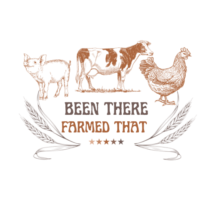Taking care of a baby goat can be a rewarding experience that can bring tremendous joy to your life. It can also be a big responsibility. Whether it’s mom’s taking care of it or it’s a bottle baby. You’re main concern is keeping it healthy and alive.
To clarify terms, the proper name for a baby goat is a kid.
First feeding for Baby goats
The first feeding is very important for the overall health of your kid. It crucial that the kid’s receive colostrum (the first milk produced) it must be fed in the first 8 hours. The sooner the better.
This is necessary to provide disease prevention and build immune strength in the young kid.

What to do for nursing kids vs. Bottle fed kids
If the kid is nursing from the doe, ensure they receive enough milk and are not getting kicked off. If you have a good maternal doe she should do a good job caring for the kid. You should monitor your overall health of the kid and intervene when required.
If you have ended up with a bottle kid they will require more attention. Refer to below for how to feed them.
| Age | Amount of MR/ feeding | Number of Feedings |
|---|---|---|
| Day 1 | Colostrum | |
| Day 2 - 10 | 4 - 6 oz | 4 - 5 times / day |
| Day 11 - 21 | 7-12 oz | 3 - 4 times / day |
| 21 - Weaning | 12 - 16 oz | 3 times /day |
It is best to get a kid specific milk replacer since they require higher fat in their diet. A milk replacer with approximately 22% protein and 25% Fat contents will provide best requests.
How to Introduce Concentrates and Forage to you kid
After a week of feeding from their mom or the bottle, kids will begin to consume solid foods.
It is best to provide them free access to forage all day, whether that is hay or grass. Forage is essential for their rumen development into older ages.
Kids should also have grain provided to them. A concentrate with 16% crude protein is the best starter. It is best practice to give the kids a creep feed to eliminate competition from the adult goats.
What minerals and Vitamins are required for young kid goats?
Since a kid is consuming milk they do not have a functioning rumen. This means their mineral and vitamins are not the same as a weaned older goat. For the list of those mineral an vitamin requirements you can read my Complete Guide on How to Feed Goats.
Most kid-specific feeds should be formulated to meet their requirements. However it is always good to check your feed label that they are receiving everything. Here is a thorough a checklist.
Vitamins
- All B vitamins
- Vitamin K
- Vitamin A
- Vitamin D
- Vitamin E
Minerals
- Calcium.
- Phosphorus
- Sodium
- Potassium
- Chloride
- Sulfur
- Magnesium
- Iron
- Copper
- Cobalt
- Zinc
- Manganese
- Selenium
- Molybdenum
- Iodine
Since goats and kids are not majors saliva producers it is best to always offer free choice mineral in a loose form rather than a block.
How to wean your kid goats
Weaning is a stressful process for every species. With stress comes disease and sickness. This is why making the weaning process as smooth as possible is vital.
If your kid is nursing from their mother, their mother should wean them naturally. You montior they’re solid feed consumption and provide access to fresh water prior to their mother “kicking them off”.
When you are feeding a bottled baby the average weaning age is 8 weeks. Do not begin the weaning process until they have reach 2.5 times their birthweight and are consuming about 30g of solid food per day. If your kid is struggling to eat solids, extra time on milk won’t hurt them.
Bottom Line
Nutrition and care are crucial to caring for your baby goat. Kids are rabid growing animals and require plenty of nutrients, vitamins and minerals to meet their requirements. This will be the most stressful time in their life. Providing them with all the required resources will ensure and strong and healthy goat.
